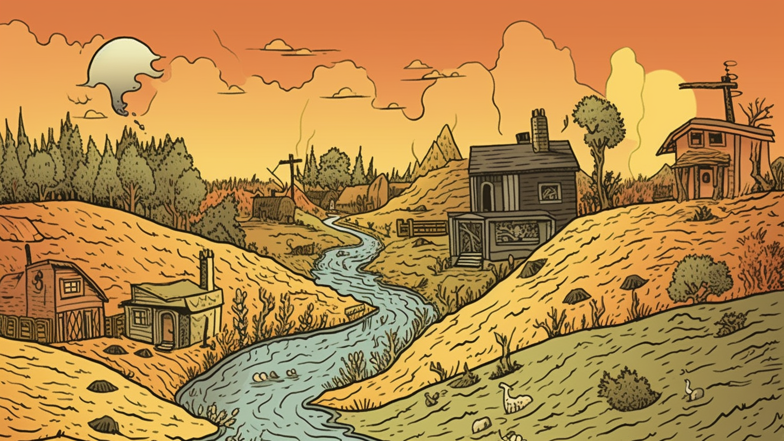
One of the major effects of global warming is rising sea levels. As the earth's temperature increases, glaciers and ice sheets melt faster, leading to a rise in sea levels. In recent decades, sea levels have risen at an unprecedented rate, threatening coastal communities and their infrastructure. Many island nations and low-lying areas are already experiencing the effects of rising seas, with frequent flooding and the loss of homes and livelihoods. According to the United Nations, millions of people are at risk of being displaced due to rising seas, leading to a global refugee crisis.
The effects of climate change are also being felt in our oceans. As the earth's temperature increases, the oceans absorb the excess heat and carbon dioxide emissions, leading to ocean acidification. This is causing coral reefs, which are vital ecosystems, to bleach and die. Coral reefs support a vast array of marine life and provide food and livelihoods for millions of people. The loss of these ecosystems would mean lost livelihoods and serious food security concerns for millions of people.
Climate change is also causing disruptions in weather patterns, leading to more frequent and severe extreme weather events such as floods, droughts, and wildfires. In recent years, we have witnessed devastating floods in countries such as Bangladesh and India, historic droughts in California and Australia, and raging wildfires in California and Australia. These events have led to the loss of lives, damage to infrastructure, and serious economic impacts.
Global warming is also affecting our wildlife. As temperatures increase, many species are struggling to adapt to the changing climate. The polar ice caps are melting faster than ever before, threatening the survival of polar bears and other arctic wildlife. Many species of birds, including penguins, are also facing extinction due to changing climate patterns, making them unable to breed and migrate properly.
The impact of global warming on human life cannot be ignored. Climate change is leading to increased food and water scarcity, resulting in higher prices, malnutrition, and even starvation. The lack of access to clean drinking water is also becoming a major concern for many communities globally. This, in turn, is leading to serious health concerns, particularly in developing countries, where diseases related to water and food scarcity are more prevalent.
The effects of global warming are also being felt in urban areas. Heatwaves are becoming more frequent and severe, resulting in increased air pollution and heat-related illnesses. This is particularly dangerous for vulnerable communities such as the elderly, young children, and those with underlying health conditions. Furthermore, the increase in severe weather events is causing significant damage to critical infrastructure, including power grids, transport networks, and communication systems, leading to widespread disruption.
The economic impacts of climate change are also significant. Many communities that rely heavily on farming and fishing are already experiencing the effects of global warming. Crop yields are decreasing, and fish stocks are declining, leading to lost income and increased poverty. The economic costs of extreme weather events are also incalculable, with severe flooding and other natural disasters causing damage to homes, businesses, and infrastructure.
All these devastating effects of global warming highlight the urgent need for immediate action to combat climate change and mitigate its impact. Governments must take responsibility and put in place robust strategies and policies to reduce greenhouse gas emissions and promote renewable energy sources. Cutting down on the use of fossil fuels, such as coal, oil, and gas, will significantly reduce carbon emissions and slow down the rate of global warming. The development and adoption of clean energy and sustainable agricultural practices are pivotal in mitigating the impacts of climate change and reducing global warming.
Furthermore, individuals too have a role to play in fighting climate change. We need to be mindful of our daily activities and make small changes in our lives that can have a significant impact. We can reduce our carbon footprint by making smarter choices such as using public transport, reducing our energy consumption, and consuming less meat.
In conclusion, climate change is a global emergency that requires immediate action. Its effects are far-reaching and devastating, affecting our environment, wildlife, and human life. With rising sea levels, ocean acidification, extreme weather patterns, and other associated impacts of climate change, we cannot afford to sit back and do nothing. We all must take responsibility and act quickly to combat climate change before its impacts become irreversible.
Comments
Post a Comment